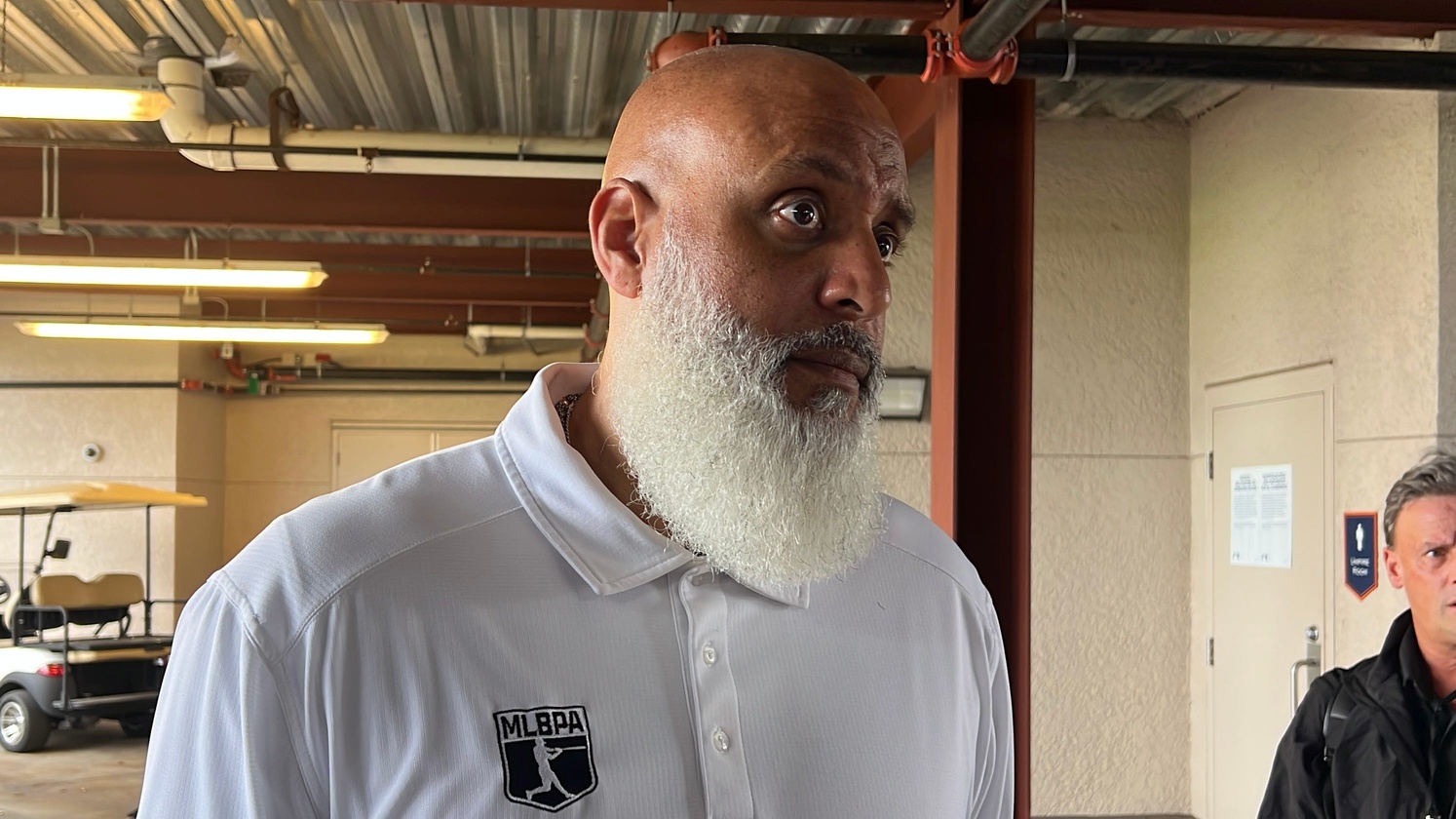The AL Central is still a mess, and the White Sox are doing their part. The Sox dragged the Twins down to 34-42 after taking the first two games of the series, which has allowed the Indians to stretch their lead to 8½ games. No other division features a lead that's even half that margin (the AL West is the closest, but the Astros hold a 3½-game lead over Seattle).
Maybe the Twins shouldn't be in second place, but the Tigers will not let them drop into third. Detroit has now lost its last eight games, and that's somehow become the least of their concerns after they fired pitching coach Chris Bosio for "insensitive comments."
WXYZ-TV in Detroit is sticking by its report that the comments were racist in nature, but no other outlet seems to be going that far yet. I'm guessing it had to be in that neighborhood of severity if it prompted that kind of punishment, especially since Detroit's pitching staff had its share of pleasant developments.
Now they'll have to avoid going too far down Ron Gardenhire's history of mistakes. Rick Anderson, Gardenhire's longtime pitching coach with the Twins, assumes Bosio's position. Anderson was the one who preferred the pitch-to-contact strategy when the league's hitters shifted toward maximizing said contact, and they also had a litany of pitcher injuries that were sloppily handled. Tigers pitchers have noted that Anderson's philosophy (and personality) are vastly different.
Bosio made a quick and significant impact on a pitching staff that ranked at or near the bottom of nearly every statistical category last season. Many of his methods are unique to him and, as Wilson said, Bosio and Anderson are “of two completely different minds.”
Kansas City is having similar issues on and off the field. Before they beat the Brewers 5-4 on Wednesday, they were the subject of a startling stat:
Indeed, they had lost 18 of their previous 21 games, and they won those three games by a combined score of 5-0. So there's that.
But now GM Dayton Moore is publicly stepping in it as he flirts with the idea of signing Oregon State pitcher Luke Heimlich, who went undrafted due to being convicted of child molestation as a 15-year-old. He tried to clear his name through Sports Illustrated and the New York Times by proclaiming innocence (he pleaded guilty, but now says it was only because it was the best for the family). This approach has seemingly backfired, because there's a zero-sum effect. Going on the offensive reopens wounds for the victim, and maybe even sexual assault victims in general.
Whatever the case, it's not surprising that a team with a shortage in prospects is looking into selecting Heimlich, because he's a first-day draft talent. Moore has his public piety and a love-the-sinner-hate-the-sin ethos to fall back on, which gives him some cover as he floats this balloon.
What made this more of a mess for him was dragging Jarrod Dyson into it. When reaching for a similar case of players who rehabilitated reputations with the team, he pointed to his former center fielder:
“We’re an organization that made a stance against the harmful effects of pornography,” Moore said, “and how it affects our young players and our young people and young minds. We’re very sensitive to these types of things.
“We also believe in giving players second chances. We’ve given some players third and fourth chances.”
Moore used former Royals outfielder Jarrod Dyson as an example of a player who received a second chance because they “believed in his heart.” He said the club would continue to monitor whether Heimlich was worthy of such a chance.
I didn't remember Dyson doing anything WRONG-wrong during his time in Kansas City. He survived a tough upbringing and served a 50-game suspension for amphetamines in the minors in 2009, but searching turned up nothing that warranted Dyson being used as a like case.
The Arizona Diamondbacks reporter for The Athletic asked Dyson about it, and Dyson was equally miffed:
If the two are to talk, though, it’ll have to be Moore reaching out to his former player, not the other way around. After all, Dyson didn’t insert his own name into the Luke Heimlich discussion.
“At the end of the day, I ain’t put it out,” Dyson said, “so I ain’t going to be doing no calling.”
Asked to clarify, Moore said that they weren't like cases, and tried to pin it on a local story being made national:
Dyson’s and Heimlich’s offenses are “not even close,” Moore said; he agreed that their transgressions are at completely different ends of the spectrum. Moore said he used Dyson’s name as a shorthand for what can result from second chances, meant for a Kansas City community familiar with the outfielder’s journey. He was not “speaking to New York or Arizona, Phoenix, Boston,” he said, but to a fanbase that “knows what I’m talking about when I mention Jarrod Dyson.”






